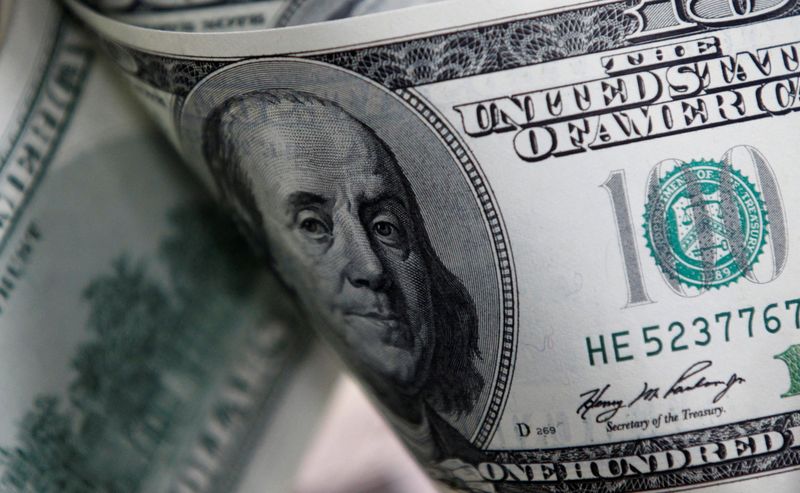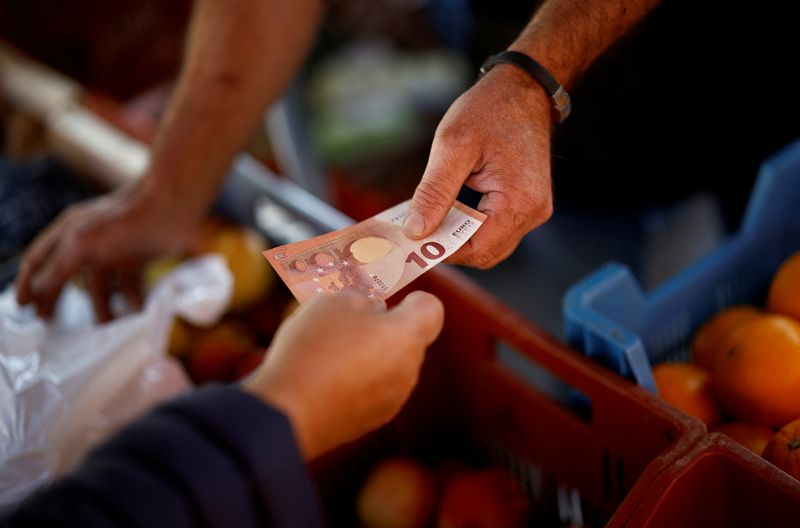
By Stefano Rebaudo
(Reuters) -The euro dropped to its lowest level in 6-1/2 months against the greenback on Monday (NASDAQ:MNDY) as investors worried about possible U.S. tariffs that would hurt the euro area’s economy.
Meanwhile the U.S. dollar index — a measure of its value relative to a basket of foreign currencies — slightly overshot the highs seen right after the U.S. presidential election with markets still waiting for clarity about future U.S. policy.
The sensitivity of the euro to the threat of higher U.S. import tariffs was evident late Friday when media reported that President-elect Donald Trump was lining up Robert Lighthizer, seen as a hawk on trade, to run his trade policy, analysts said.
Sources familiar with the matter said Trump has not asked Lighthizer to return to the agency overseeing trade policy.
The single currency was down 0.6% at $1.0657, after hitting $1.0656, its lowest level since May 1. It dropped 0.78% on Friday.
Politics remained under the spotlight after German Chancellor Olaf Scholz paved the way for snap elections. However, the risk of policy changes in Germany which could lead to a looser fiscal policy will be rising next year.
“The thesis for dollar bears now is that it will take a while for tariffs to come through and the Fed recalibration to less restrictive monetary policy,” said Chris Turner, head of forex strategy at ING.
“We disagree and think this clean election result can boost U.S. consumer and business sentiment at the same time as it weighs on business sentiment elsewhere in the world,” he added.
The dollar index was 0.45% firmer at 105.44, after hitting 105.50, its highest since July 3. Last week, it jumped more than 1.5% to 105.44, after U.S. presidential election results showed Trump’s victory.
MIXED VIEWS ON THE GREENBACK
Trump “will be less encumbered by the political considerations of having to run for office again,” said Libby Cantrill, head of U.S. public policy at PIMCO.
“However, what look to be narrow congressional margins – potentially historically narrow in the House – could be a check on Trump’s agenda, fiscal and otherwise,” she added.
Measures from the U.S. President-elect — including tariffs and tax cuts — should put upward pressure on inflation and bond yields while limiting the Fed’s scope to ease policy and supporting the greenback.
Lee Hardman, senior currency analyst at MUFG, flagged a media report suggesting earlier this year that Lighthizer was considering weakening the greenback.
“Higher tariffs could be used to force other countries to agree to revalue their currencies against the U.S. dollar,” he said, mentioning the Plaza Accords in 1985.
The Plaza Accords was an agreement between five major economies to depreciate the greenback through coordinated currency market interventions.
The dollar gained 0.8% on the yen to 153.80, having been dragged off last week’s top of 154.70 by the risk of Japanese intervention. On Nov. 6 it hit 154.68, its highest level since July.
A summary of opinions from the Bank of Japan’s October policy meeting showed some members were unsure on when to raise rates also due to political uncertainty.
The rate outlook will be crucial for the greenback while all major central banks ease their monetary policy.
The U.S. bond market is closed for a public holiday on Monday, though stocks and futures are open.
Citi expects U.S. rates to stay close to current levels in the near term as the market is caught between expectations of significant policy changes in 2025 and the easing cycle driven by near-term data.
Disappointment at the latest Chinese stimulus package had seen the Australian and New Zealand dollars slide on Friday.
The U.S. dollar versus the offshore yuan hit its highest since early August at 7.2225, up 0.4% on Monday. It jumped 0.70% on Friday after falling 0.75% the day before.

Highlighting the bleak background in China, data out over the weekend showed consumer prices rose at the slowest pace in four months in October, while producer price deflation deepened.
Bitcoin soared to a record high above $81,000 on Monday on expectations that crypto-currencies will boom in a favourable regulatory environment following the election of Trump as U.S. president and pro-crypto candidates to Congress.
This post is originally published on INVESTING.



